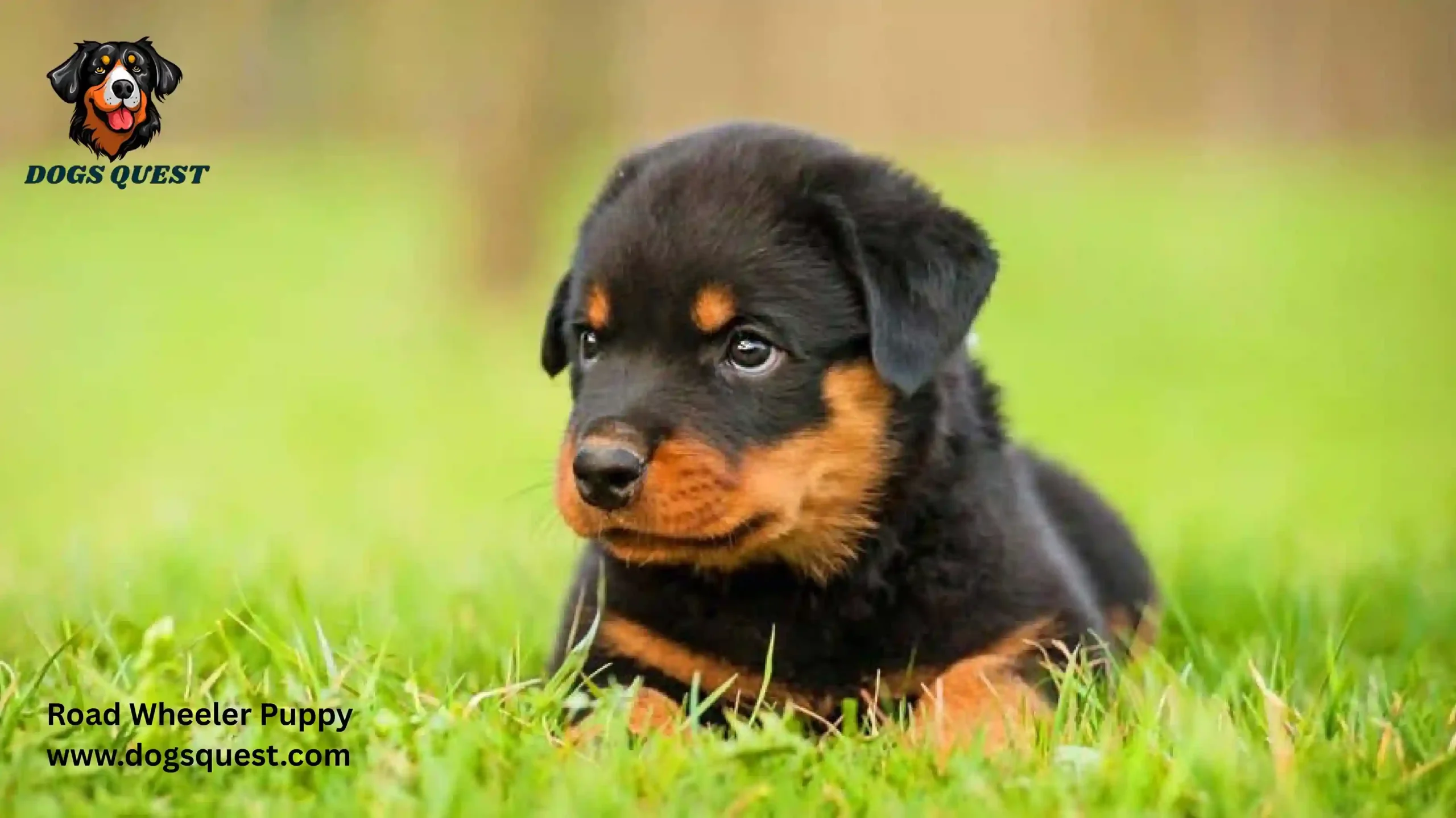Discover 10 powerful secrets to raising a Wheeler Puppy the right way. Learn expert care tips, training advice, nutrition plans, and health solutions to ensure your Wheeler Puppy grows into a happy, loyal, and well-behaved companion.
Introduction
The Road Wheeler Puppy is one of the most fascinating dog breeds in the world of working dogs. Known for its strength, intelligence, and protective nature, this puppy can become both a loyal family guardian and a playful best friend.
But here’s the thing: raising a Wheeler Puppy is not just about providing food and shelter—it’s about understanding its unique needs, behavior, and temperament. If you don’t train, socialize, or care for this breed properly, it can develop stubbornness or destructive habits.
That’s why I’ve put together 10 powerful secrets that will help you raise your Wheeler Puppy the right way. Whether you’re a first-time owner or someone with dog experience, this guide will give you all the tools you need to make your puppy’s life healthy and happy.
What Exactly Is a Road Wheeler Puppy?
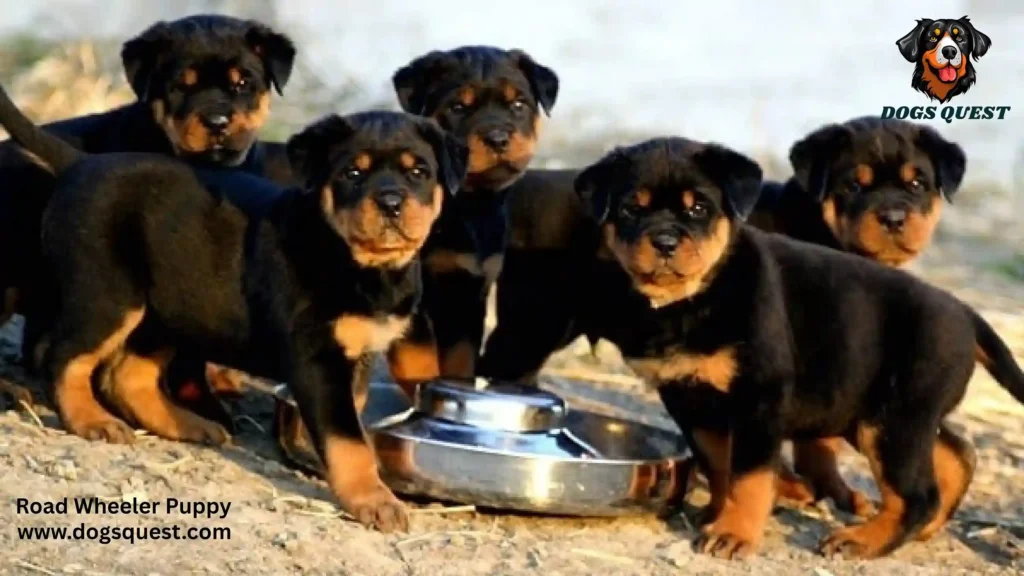
Before diving into the secrets, let’s understand what makes the Wheeler Puppy special.
Breed Characteristics
The Wheeler Puppy is a working dog breed often admired for its strength, courage, and loyalty. These puppies grow into muscular, confident adults who are deeply attached to their families.
- Category: Working / Guardian breed
- Average size: 80–135 lbs (adult)
- Height: 22–27 inches
- Temperament: Brave, protective, affectionate with family
- Lifespan: 8–10 years
- Energy level: High
Personality Traits
A Road Wheeler Puppy is:
- Protective: Naturally guards family and home.
- Intelligent: Learns commands quickly.
- Affectionate: Loves bonding time with family members.
- Playful: Enjoys exercise, games, and outdoor adventures.
10 Powerful Secrets to Raising a Road Wheeler Puppy
Start Training Early
The number one secret is to begin training your Road Wheeler Puppy as early as possible. This breed is intelligent but strong-willed. Without guidance, it can become dominant or difficult to manage.
Basic Commands
Teach simple commands like sit, stay, down, and come. These not only improve obedience but also strengthen your puppy’s trust in you.
Socialization
Expose your Wheeler Puppy to other dogs, people, and different environments. A well-socialized puppy grows into a confident adult that knows how to behave around strangers.
Nutrition Is the Foundation of Growth
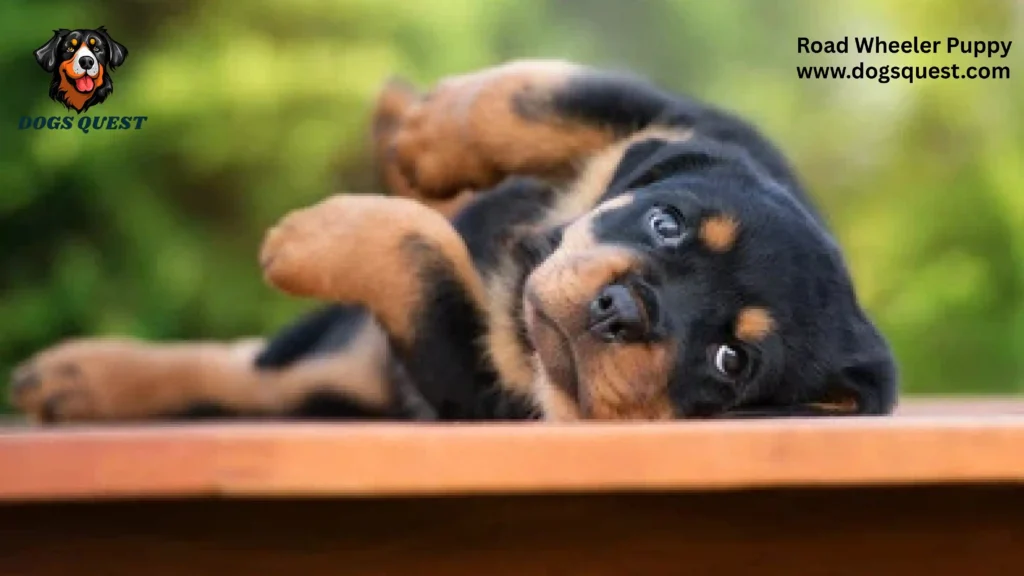
Diet directly affects your puppy’s health and energy levels. A Road Wheeler Puppy needs high-quality food rich in proteins, fats, and essential nutrients.
What to Feed
- Lean meats (chicken, beef, lamb)
- Fish oils for brain and coat health
- Whole grains and vegetables for energy
Feeding Schedule
- 8–12 weeks old: 4 meals/day
- 3–6 months old: 3 meals/day
- 6–12 months old: 2 meals/day
Overfeeding can cause obesity and joint problems—stick to portion control.
Daily Exercise Is Non-Negotiable
The Road Wheeler Puppy is energetic and active. Without proper exercise, it may become destructive or hyperactive.
How Much Exercise?
- Puppies (3–6 months): 30–45 minutes/day
- Adults: 1–2 hours/day
Best Activities
- Long walks or jogging
- Fetch and tug-of-war
- Agility training and obstacle courses
Exercise doesn’t just keep your Wheeler Puppy fit—it also keeps its mind sharp and behavior balanced.
Grooming Is Essential for Hygiene
Even though the Wheeler Puppy has a short coat, grooming is still necessary for health and cleanliness.
Grooming Tips
- Brushing: Once a week to remove loose hair
- Bathing: Every 6–8 weeks with mild dog shampoo
- Nail trimming: Once a month
- Ear cleaning: Weekly to prevent infections
Regular grooming keeps your puppy comfortable and reduces health risks.
Crate Training Builds Discipline
Crate training is an effective way to teach your Road Wheeler Puppy discipline and boundaries.
Benefits
- Helps with potty training
- Prevents destructive chewing
- Provides a safe personal space
Make sure the crate is cozy—not a punishment zone.
Mental Stimulation Prevents Boredom
A Road Wheeler Puppy is highly intelligent and needs mental challenges. If left unstimulated, it may develop destructive habits.
Stimulation Ideas
- Puzzle toys and treat-dispensing games
- Basic obedience challenges
- Nose work (sniff-and-find games)
Mental exercise is just as important as physical activity for this breed.
Health Care and Vet Visits Are a Must
Like all large breeds, the Road Wheeler Puppy has certain health risks. Preventive care keeps them strong and healthy.
Vaccination Needs
- Distemper
- Parvovirus
- Rabies
- Combination vaccines
Common Health Concerns
- Hip and elbow dysplasia
- Heart conditions
- Obesity and joint problems
Regular vet checkups catch issues early and extend your puppy’s lifespan.
Positive Reinforcement Works Wonders
Road Wheeler Puppies respond best to positive reinforcement training.
Reward System
- Small, healthy treats
- Verbal praise (“Good boy!”)
- Playtime rewards
Avoid harsh punishments—this can damage trust and create fear.
Consistency Shapes Good Behavior
Consistency is one of the most powerful training tools. A Road Wheeler Puppy needs clear rules and routines.
- Use the same commands every time
- Feed at the same times daily
- Reward consistently for good behavior
Without consistency, your puppy may become confused and disobedient.
Bonding Builds Loyalty
The final secret is bonding time. A Road Wheeler Puppy thrives on love and attention.
Bonding Ideas
- Daily walks together
- Training sessions as teamwork
- Quiet cuddle time indoors
A strong bond creates a loyal, loving, and obedient companion.
Training Tips for Road Wheeler Puppy Owners
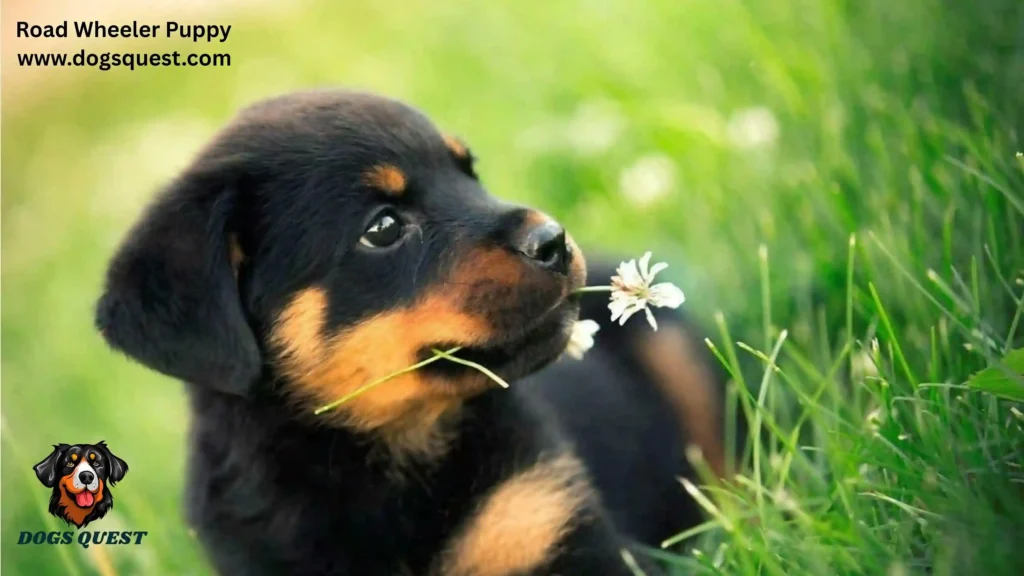
Leash Training
Begin with short walks using a comfortable harness. Gradually teach your Road Wheeler Puppy to walk beside you without pulling.
Potty Training
Take your puppy outside after meals and naps. Praise them immediately when they go potty outdoors.
Avoiding Behavioral Issues
Never encourage aggressive play. Correct unwanted behavior calmly and consistently.
Common Mistakes to Avoid
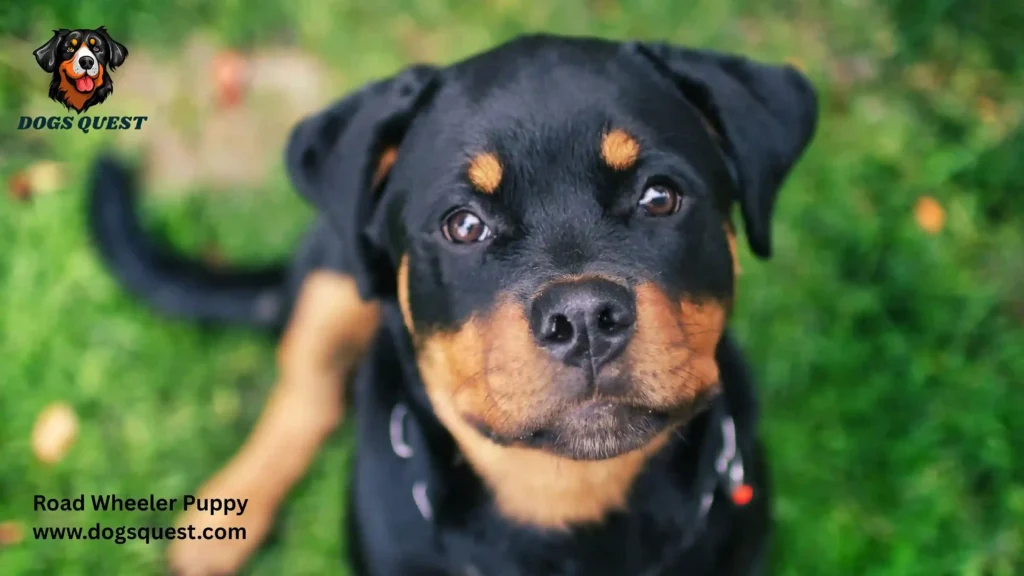
Skipping Socialization
Failing to socialize your Road Wheeler Puppy may lead to fear or aggression later in life.
Overfeeding
Obesity can cause joint problems and shorten your dog’s lifespan. Stick to proper portions.
Ignoring Mental Needs
Focusing only on physical exercise while neglecting mental challenges may cause destructive chewing or barking.
Is the Road Wheeler Puppy Right for You?
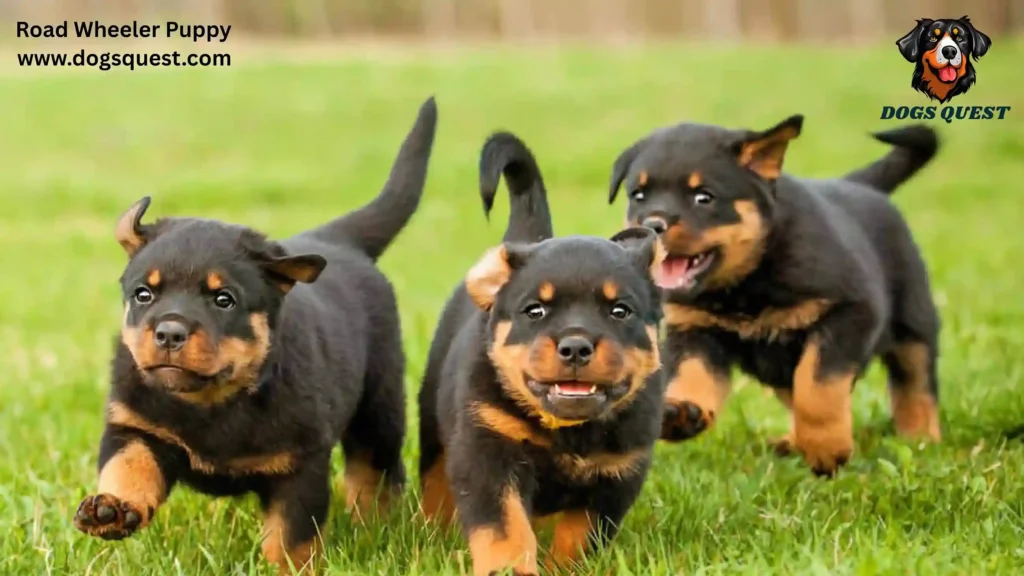
This breed is not for everyone. A Road Wheeler Puppy requires an active, committed owner who understands its needs.
Perfect Owners
- Families wanting a loyal guardian
- Active individuals who enjoy outdoor activities
- Owners willing to commit to training
Not Ideal Owners
- First-time dog owners with no training experience
- People with busy schedules who can’t provide attention
- Sedentary households with little exercise
Final Thoughts
The Road Wheeler Puppy is a remarkable breed that combines intelligence, strength, and loyalty. But raising one requires effort, patience, and love.
By following these 10 powerful secrets, you’ll create the perfect environment for your Road Wheeler Puppy to thrive. With the right training, nutrition, exercise, and bonding, your puppy will grow into not just a pet—but a lifelong best friend.
FAQ Section for Road Wheeler Puppy
Q1: What is a Road Wheeler Puppy?
A Road Wheeler Puppy is a large, powerful, and intelligent working dog breed admired for its loyalty, courage, and protective instincts. It grows into a muscular adult weighing 80–135 pounds and thrives with proper training, socialization, and exercise. Affectionate with family but naturally protective, the Road Wheeler Puppy makes both a loving companion and a dependable guardian.
Q2: How big does a Road Wheeler Puppy get?
An adult Road Wheeler Puppy typically weighs between 80–135 pounds and stands 22–27 inches tall, depending on genetics and gender.
Q3: Is a Road Wheeler Puppy good with families?
Yes, when properly trained and socialized, the Road Wheeler Puppy is affectionate, protective, and gentle with family members, including children. However, supervision is important with younger kids due to the breed’s large size.
Q4: How much exercise does a Road Wheeler Puppy need?
A Road Wheeler Puppy needs at least 30–45 minutes of activity daily during puppyhood and 1–2 hours of structured exercise once fully grown. Activities like long walks, jogging, and fetch are excellent for their energy levels.
Q5: What should I feed my Road Wheeler Puppy?
A balanced diet rich in protein, healthy fats, and essential vitamins is best. Choose high-quality puppy food, lean meats, and supplements like fish oil. Avoid overfeeding, as the breed is prone to obesity and joint problems.

